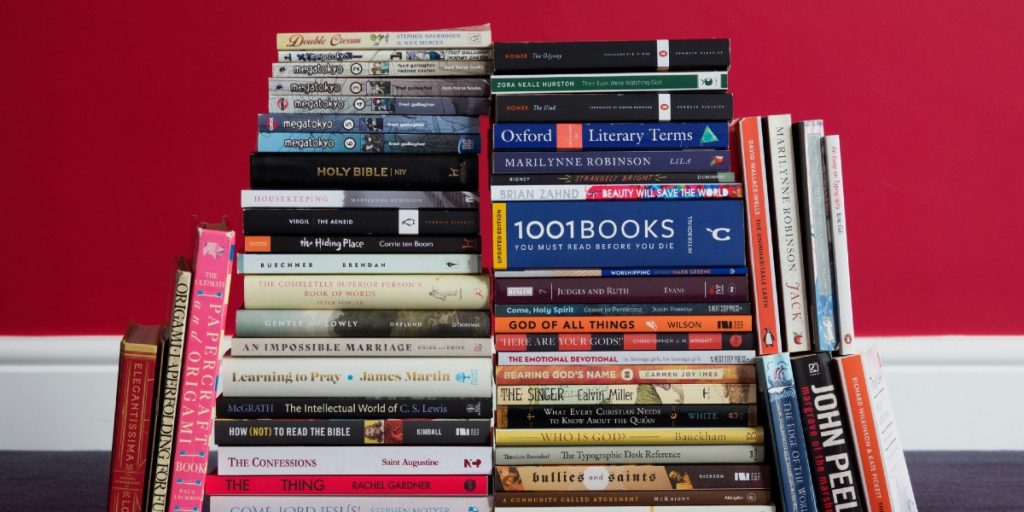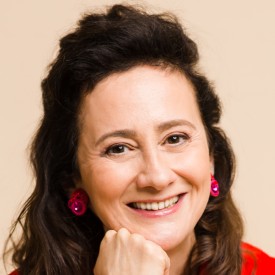Are we all so busy doom-scrolling and binge-watching that we’ve forgotten how to have fun? Science journalist Catherine Price thinks so—but don’t despair. Her latest book, The Power of Fun, is jam-packed with research-backed hacks for finding meaning, forging connections, improving your health, and living life to the fullest—all while having a darn good time.
Listen to Catherine’s episode of the Next Big Idea podcast below, or read a few key highlights. And follow host Rufus Griscom on LinkedIn for behind-the-scenes looks into the show.
We are not having enough fun.
Rufus Griscom: Are we as a society having enough fun?
Catherine Price: No, we’re definitely not having enough fun. We don’t prioritize it. We don’t think about what it really is, and we do a lot of things that are marketed to us as fun that aren’t actually fun. We’re missing out on a lot of what life has to offer, and doing bad things to our emotional and physical health, because we’re not having enough fun.
Rufus: I agree with you one hundred percent—we are not having enough fun, people! We’ve got to do something about this, Catherine.
You quote Jennifer Senior, referring to the “dirty secret of adulthood,” namely “the sameness of it, its tireless adherence to routines and customs and norms.” My gosh, that resonates for me. The sameness of it. Maybe part of the problem is adulthood.
Catherine: I would agree with that. I think that we have this assumption that, first of all, adults can’t care too much about our own fun—it’s somehow frivolous or irresponsible because there are so many horrible things going on in the world that we believe we should be paying attention to.
As you become an adult, you start to take on more and more responsibilities, whether it’s tedious stuff like laundry and cooking and taxes and paying bills, or things that are joyful but also come with a lot more responsibility, like getting married and having kids. There are a lot of things working against us when it comes to adulthood and fun.
“We’re missing out on a lot of what life has to offer, and doing bad things to our emotional and physical health, because we’re not having enough fun.”
True fun is the confluence of three states: playfulness, connection, and flow.
Catherine: I had a couple of experiences where I was deliberately taking a break from all of my screens and not having that stream of content being sprayed at me. And I found myself at a loss for what to do. I was actually sitting in this room one Saturday afternoon, and I was thinking, I’ve got a whole hour in front of me. My husband was on an errand. My daughter was napping. I could do anything. But I couldn’t think of anything I wanted to do. And that was very upsetting to me—I realized I had gotten so used to having my time filled that I didn’t know how I wanted to fill my own time.
So I asked myself this question that I encourage everyone to ask themselves: What’s something you say you want to do but supposedly don’t have time for? My answer was, well, I have a guitar. My grandmother gave me money for a guitar in college. I was really close to her, but I’ve never gotten around to playing this guitar. So I signed up for this class—it was super laid back, BYOB. And I started having this feeling in that class that I couldn’t put my finger on. I just felt so alive. I felt this ebullient, joyful energy that carried me through the whole week.
And to be clear, I have a lovely life. I’m a happy person. I have a wonderful husband. But the feeling I got from that class—the best word I could put on it was “fun.” And so that got me thinking: If the best word that describes it is “fun,” then what is fun? Why do we use the word “fun” in all these other contexts that don’t feel this way? What is it doing physiologically to us, and how can we have more of it?
What I quickly realized is that if you look at how the dictionary defines fun, it does not match up at all to the feeling of joyful energy that I was experiencing. To make sure I wasn’t crazy, I collected thousands of stories from people all around the world asking them: Tell me about an experience that you would describe as having been truly fun. I read through these anecdotes, and the details were obviously different, but there was this joyful energy in them.
All that is to say, I realized that I needed to come up with a new definition of the word “fun,” because the dictionary just says that it’s lighthearted pleasure or amusement or enjoyment. And the definition that I came up with, based on this research, was that fun is a feeling—it’s not an activity. And I think that the feeling of fun happens when we experience the confluence of three states: playfulness, connection, and flow.
“I had gotten so used to having my time filled that I didn’t know how I wanted to fill my own time.”
Is it selfish to seek out fun in a world that sometimes feels like it is going to hell in a handbasket?
Rufus: Feeling like we have permission to have fun in a world in which ice caps are melting and people are dying—is that something you think about?
Catherine: I think about that a lot. First of all, it’s interesting to reflect on the fact that we typically think of life as very zero-sum. Like, why can’t I be someone who enjoys her Wednesday night guitar class and someone who cares about climate change? Why can’t we do both of those things? I also think: How am I helping the world if I spend all my time ruminating on problems? That’s not actually doing anything. If you want to talk about what’s frivolous, to me what’s frivolous is going on social media and posting angry rants to people who already agree with you. It does nothing! If you’d spent that time and had an experience that was fun for you, you could have created a bond with someone else. You also would have created energy for yourself to then do something more than scream into the blank void of social media.
Because of this element of connection and playfulness, I’d also argue that when you have fun with people, you start to see them not as adversaries, but as human beings. There’s a great photo of Carter, Obama, Bush, and Clinton having a laugh—a moment of what really looks like true fun. Clinton is reaching out and touching Bush’s shoulder. They’re having a moment of bonding. If you tap into that feeling, those men would be able to work together, even though they disagree deeply on many things. So I think there’s also an element of using fun and the unguardedness of it, the connection that comes from it, to see each other as human beings, instead of as political parties or religions or nationalities. When we connect with on another as human beings, that is the first step in working together to solve problems
True fun is the opposite of frivolous. It’s essential, and it can help us have the resiliency, energy, and connectedness we need to deal with some of the hard stuff.
Rufus: Fun does not have a political affiliation—Republicans and Democrats can dance together at weddings. Fun is usually not very expensive, and it’s contagious. So let there be more fun for everyone.
Catherine: I couldn’t agree more.
To learn about Catherine’s books and course, and to sign up for her newsletter, visit ScreenLifeBalance.com.
To enjoy ad-free episodes of the Next Big Idea podcast, download the Next Big Idea App today:






























